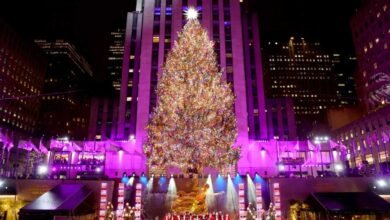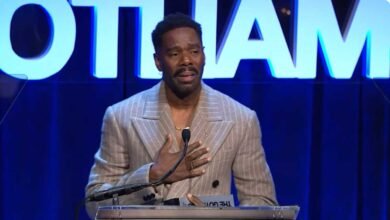Wicked: The Evolution of Oz and Why This Blockbuster Musical Will Defy Expectations

John M. Chu’s Wicked (Part One), starring Ariana Grande as Glinda and Cynthia Erivo as Elphaba, is poised to dominate the holiday box office as one of the most anticipated movie events of the year. Adapted from Stephen Schwartz and Winnie Holzman’s Tony and Grammy Award-winning Broadway musical, itself based on Gregory Maguire’s Wicked: The Life and Times of the Wicked Witch of the West, the film brings a fresh take to L. Frank Baum’s classic world of Oz. With a fervent fanbase built over decades, Wicked could become the most significant musical adaptation in recent memory.
While recent musical adaptations like West Side Story (2021), In the Heights (2021), The Color Purple (2023), and Wonka (2023) generated buzz, none match the phenomenon of Wicked. Its enduring appeal is powered not just by its Broadway success but also by its ties to The Wizard of Oz (1939), a cultural touchstone. Yet, despite the success of Baum’s books and MGM’s beloved film, Hollywood has struggled to consistently adapt Baum’s 14-book Oz series.
The Origins of Oz: Baum’s Forgotten Fantasy Empire
Before Narnia or Middle-earth, there was Oz. Published in 1900, Baum’s The Wonderful Wizard of Oz became an instant success, with its charm leading to 13 sequels and a multimedia empire that Baum himself tried to build. However, his ambitious ventures—including stage musicals, live-action films, and even a theme park—left him financially strained, and his cinematic efforts floundered.
Despite Baum’s vision, Oz struggled to transition successfully to film. MGM’s The Wizard of Oz (1939), now a cultural icon, was initially a box-office failure. Though it eventually turned a profit through re-releases, its expensive production and troubled shoot deterred MGM from producing sequels, leaving Oz largely dormant in Hollywood for decades.
Hollywood’s Rocky Yellow Brick Road
In the years following The Wizard of Oz, filmmakers faced challenges adapting Baum’s whimsical world for modern audiences. Larry Semon’s 1925 silent film and Disney’s Return to Oz (1985) both bombed at the box office despite cult followings. Universal’s The Wiz (1978), a culturally significant reimagining of Oz through Black culture, suffered critical and financial failure despite its stellar cast, including Diana Ross and Michael Jackson.
Disney revisited Oz with Oz the Great and Powerful (2013), a prequel starring James Franco as a con-man wizard. While financially successful, the film fell short of Disney’s billion-dollar expectations and failed to reignite the franchise.
What Makes Wicked Different?
Unlike previous attempts, Wicked is not constrained by Baum’s original vision. Gregory Maguire reimagined Oz as a darker, politically charged landscape where the Wicked Witch of the West is the misunderstood hero. The Broadway adaptation softened some of the novel’s sharper edges, but it retained the core themes of prejudice, corruption, and resistance, resonating with modern audiences.
By giving Oz a moral complexity that reflects contemporary issues, Wicked succeeds where previous adaptations faltered. Baum’s books were aimed at children and lacked the grit or romance of other fantasy epics, such as The Chronicles of Narnia. Wicked redefines the narrative, aging it up and aligning it with the complexities of today’s world.
Why Wicked Will Soar
For fans who grew up with the cult classics The Wiz and Return to Oz, and for those inspired by the seeds of Elphaba’s story in Oz the Great and Powerful, Wicked offers a chance to revisit Oz with fresh eyes. Beyond its stellar cast and beloved soundtrack, the film is set to break new ground by embracing themes of identity, resilience, and moral ambiguity.
As Wicked (Part One) takes flight this holiday season, its success will likely reshape the future of Oz adaptations. With Wicked Part Two arriving next November, fans have a chance to relive the magic of Oz in a way that’s truly popular.
Whether the film fulfills every expectation or not, it already promises to reignite the enduring fascination with the land beyond the rainbow.






